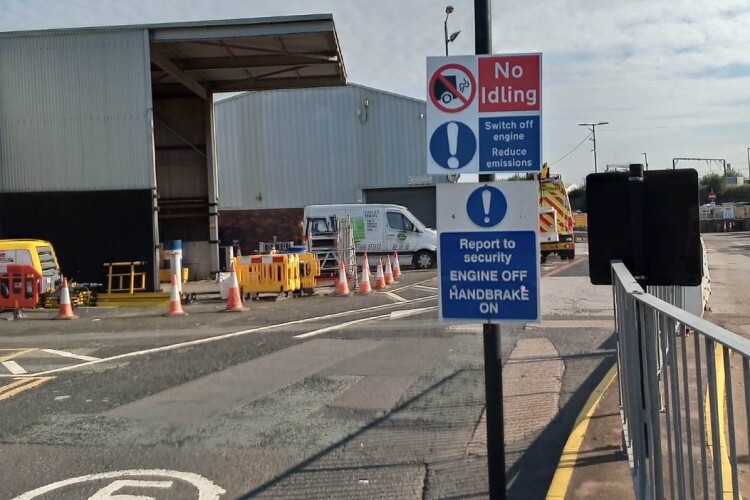Kier Highways’ new policy on engine idling states that vehicles should not be left idling for longer than 60 seconds.
Before introducing the policy, Kier’s Birmingham Highways contract conducted a trial between May and August 2021. The results revealed that the number of minutes spent idling dropped from 15,127 in May to 9,182 in August, a 40% reduction in idling minutes. Over a year, this would mean a 7.4-tonne carbon dioxide equivalent (CO2e) greenhouse gas reduction.
It would also save Kier £3,400 a year on this contract alone.
On average, an idling car wastes around 2.2 litres (half a gallon) of fuel per hour. An idling diesel truck burns approximately double that amount – a gallon an hour. For every 100 hours this would equate to around 550kg CO2e of GHG emissions, which is £240 of wasted fuel.
The sustainability team at Kier Highways explored why drivers idle their vehicles in its latest annual Green Travel survey. Based on the responses, the top six reasons were:

- For warmth/air-con – 26
- To run the beacons – 10
- Stationary in traffic – 11
- Stationary at lights – 9
- For ease/convenience – 8
- Brief site/hard shoulder inspection stops – 9
The team then set about addressing each issues in turn. For example, it now specifies standalone cab heaters with all new procured fleet so drivers don’t need the engine running to say warm.
Beacons are now LEDs and vehicles now have a cut-off, so the battery will never run flat due to beacons being left on.
Other reasons for idling (in traffic, at the lights, brief site visits etc.) were all considered behavioural rather than rational. The sustainability team is including a no idling case study into its ‘human and organisational factors’ programme (a behavioural change programme) in an effort to change this behaviour.
James Birch, managing director of local highways and Kier Highways executive sponsor for sustainability, said: “Idling vehicle engines is probably something most people do at some point, whether it’s at work or on the school run. Switching engines off is a good habit to get into. From a business perspective it’s a no brainer.
“By getting people to switch off (when it’s safe to do so), we will help combat climate change, improve health and save money…a win, win, win. The trial in Birmingham demonstrated what a difference it can make, so if we can replicate this across the whole Highways business, it would be a great achievement.”
Got a story? Email news@theconstructionindex.co.uk
.png)


